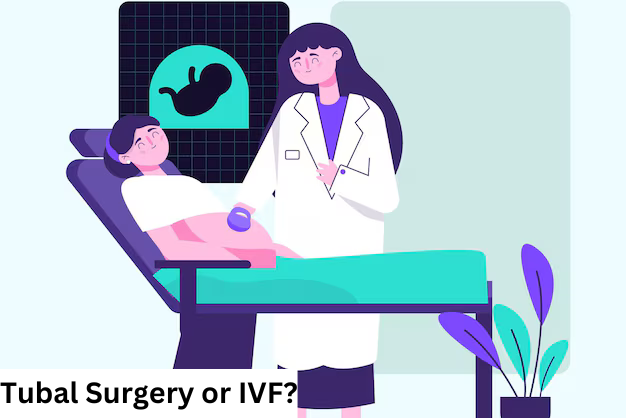Tubal Surgery or IVF?
Infertility can be a distressing experience, and when it comes to finding a solution, the options can seem overwhelming. Two common choices for women facing tubal factor infertility are tubal surgery and In Vitro Fertilization (IVF). At New World Fertility Centre in Delhi, our experienced fertility specialists can help you understand the pros and cons of each option and determine the best path forward.
Tubal Surgery
Tubal surgery is a surgical procedure aimed at repairing or restoring the fallopian tubes, which are essential for fertilization. It can be considered for women with blocked or damaged fallopian tubes. There are several types of tubal surgery, including:
- Tubal recanalization: This involves reopening blocked fallopian tubes.
- Fimbrial salpingoplasty: This procedure is used to repair damaged fimbriae, the finger-like projections at the end of the fallopian tubes.
- Tubal microsurgery: This highly specialized technique can repair more complex tubal damage.
Advantages of Tubal Surgery:
- Natural conception: If successful, tubal surgery can allow for natural conception.
- Potential for multiple pregnancies: Unlike IVF, tubal surgery doesn't limit the number of pregnancies.
- Lower cost: Tubal surgery is generally less expensive than IVF.
Disadvantages of Tubal Surgery:
- Risk of complications: Any surgical procedure carries risks, including infection, bleeding, and adhesion formation.
- Limited success rate: The success rate of tubal surgery varies depending on the extent of the damage and the individual's overall health.
- Multiple surgeries may be required: In some cases, multiple surgeries may be necessary to achieve success.
In Vitro Fertilization (IVF)
IVF is a laboratory technique where fertilization occurs outside the body. It involves stimulating the ovaries to produce multiple eggs, retrieving those eggs, fertilizing them with sperm in a laboratory, and then transferring the embryos to the uterus.
Advantages of IVF:
- High success rate: IVF has a high success rate, even for women with severe tubal damage.
- Control over the number of embryos transferred: IVF allows for the transfer of a specific number of embryos, reducing the risk of multiple pregnancies.
- Suitable for women with other fertility issues: IVF can be effective for women with various fertility problems, not just tubal damage.
Disadvantages of IVF:
- Higher cost: IVF is generally more expensive than tubal surgery.
- Hormone therapy: IVF involves hormone therapy, which can have side effects.
- Multiple attempts may be required: In some cases, multiple IVF cycles may be necessary to achieve a successful pregnancy.
Choosing the Right Option
The decision of whether to pursue tubal surgery or IVF depends on several factors, including:
- Extent of tubal damage: The severity of the tubal damage will influence the likelihood of success with tubal surgery.
- Age: The success rate of both tubal surgery and IVF generally decreases with age.
- Overall health: Your overall health and any other medical conditions can affect your suitability for either procedure.
- Personal preferences: Your personal preferences, goals, and financial situation should also be considered.
At New World Fertility Centre, our fertility specialists will carefully evaluate your individual circumstances and provide personalized guidance to help you make an informed decision. We are committed to helping you achieve your dream of having a child.
Frequently Asked Questions(FAQs)
1. What are the success rates for tubal surgery and IVF?
The success rates for tubal surgery and IVF vary depending on several factors, including the extent of tubal damage, age, overall health, and individual circumstances. Our fertility specialists can provide you with more specific information based on your unique situation.
2. Is tubal surgery painful?
Tubal surgery is typically performed under anesthesia, so you should not feel any pain during the procedure. However, there may be some discomfort or pain afterward. Our team will provide you with pain management strategies to help alleviate any discomfort.
3. How long does recovery take after tubal surgery or IVF?
Recovery time varies depending on the type of procedure and individual factors. You may need to rest for several days or weeks after surgery. Our fertility specialists will provide you with specific instructions and guidance on recovery.
4. Can I have multiple pregnancies after tubal surgery or IVF?
Tubal surgery, if successful, can allow for natural conception and multiple pregnancies. However, IVF involves transferring a specific number of embryos, which helps reduce the risk of multiple pregnancies.
5. Are there any long-term risks associated with tubal surgery or IVF?
Both tubal surgery and IVF carry some risks, including infection, bleeding, and adhesion formation. However, these risks are generally low when performed by experienced fertility specialists in a well-equipped facility.

 Aug-11-2025
Aug-11-2025